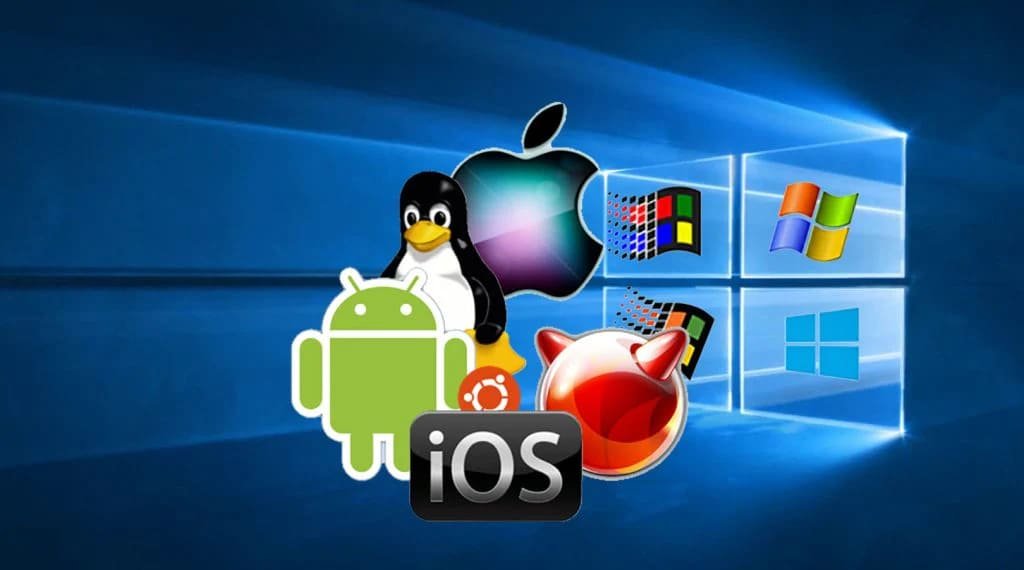
Operating systems are an essential component of any computer. They act as a bridge between the hardware and the user, providing a platform for running applications and managing resources. Two popular operating systems in the market today are Linux and Windows. In this blog post, we will explore the advantages and disadvantages of each and discuss which one is better suited for use on PCs.
Starting at age 44, your energy, metabolism, and overall well-being may be silently declining. Don’t wait for symptoms.
Linux: The Open-Source Powerhouse
Linux is an open-source operating system that is based on the Unix operating system. One of the biggest advantages of Linux is its open-source nature. This means that the source code is freely available, allowing users to modify and customize the operating system to suit their needs. This has led to a large community of developers and enthusiasts who contribute to the development and improvement of Linux.
Another advantage of Linux is its stability and security. Linux is known for its robustness and reliability, making it a popular choice for servers and high-performance computing. Its security features, such as user permissions and encryption, make it less prone to malware and other security threats.
Linux also offers a wide range of software options. The Linux ecosystem is rich with open-source software, which means that users have access to a vast library of applications and tools. Additionally, Linux supports a variety of programming languages, making it a preferred choice for developers.
However, Linux does have its disadvantages. One of the main challenges with Linux is its learning curve. Linux can be more complex to use and configure compared to Windows, especially for users who are accustomed to the Windows interface. Additionally, some hardware manufacturers may not provide drivers or support for Linux, which can limit the compatibility of certain devices.
Windows: The User-Friendly Option
Windows, developed by Microsoft, is the most widely used operating system in the world. One of the biggest advantages of Windows is its user-friendly interface. Windows provides a familiar and intuitive experience, making it easy for users to navigate and perform tasks. This makes Windows a popular choice for casual users and those who are not tech-savvy.
Another advantage of Windows is its extensive software compatibility. Many popular applications and games are developed specifically for Windows, ensuring a wide range of options for users. Additionally, Windows has excellent hardware support, with most manufacturers providing drivers and support for their devices on the Windows platform.
Windows also offers a seamless integration with other Microsoft products and services. This includes features such as Microsoft Office suite, OneDrive cloud storage, and Microsoft Edge browser. For users who heavily rely on these products, Windows provides a cohesive and integrated experience.
However, Windows does have its disadvantages as well. One of the main concerns with Windows is its susceptibility to malware and security threats. Windows is a prime target for hackers due to its popularity, and users need to be vigilant in keeping their systems updated and protected.
Another disadvantage of Windows is its licensing cost. Unlike Linux, which is free and open-source, Windows requires a license for each installation. This can add to the overall cost, especially for businesses or individuals with multiple PCs.
Which Operating System Should You Use on PCs?
When it comes to choosing an operating system for PCs, there are several factors to consider. The decision ultimately depends on the specific needs and preferences of the user.
If customization, stability, and security are top priorities, Linux is an excellent choice. Linux provides a high level of control and flexibility, making it ideal for users who want to tailor their operating system to their exact requirements. It is also a preferred option for developers and those who work with servers or high-performance computing.
On the other hand, if user-friendliness, software compatibility, and seamless integration with Microsoft products are important, Windows is the way to go. Windows offers a familiar and intuitive interface, making it suitable for casual users and those who prefer a more straightforward experience. It also provides extensive software options and excellent hardware support.
Ultimately, the choice between Linux and Windows boils down to personal preference and specific use cases. Some users may even choose to dual-boot their systems, allowing them to experience the best of both worlds.
Other Operating Systems
There are other important Operating Systems such as Apple MacOS for exclusive use of that brand’s equipment, Google’s Android OS and Apple iOS, the latter being used for Google and Apple mobile devices respectively.
Conclusion
Linux and Windows are two popular operating systems with their own set of advantages and disadvantages. Linux offers customization, stability, and a vast library of open-source software, while Windows provides user-friendliness, software compatibility, and seamless integration with Microsoft products. The choice between the two depends on individual needs and preferences. PCs can benefit from either operating system, depending on the user’s requirements.
Whether you choose Linux or Windows, both operating systems have their strengths and weaknesses. It’s important to consider your specific needs, technical expertise, and software requirements when making a decision. Ultimately, the operating system you choose should provide a stable and secure platform for your computing needs.
Discover More of Technology Splendor: Explore Our Other Sites
Your Health is your Best Investment
Energy, clarity, and balance are the foundation of every dream. Without health, wealth loses its shine and relationships lose their spark. Discover strategies to strengthen your body, sharpen your mind, and energize your spirit.
Learn How to Protect It →Relationships Give Life Meaning
Health gives you energy. Wealth gives you freedom. But only deep, authentic relationships give life true purpose. Discover the tools to connect, love, and communicate at your best.
Improve your Personal and Business Relationships
